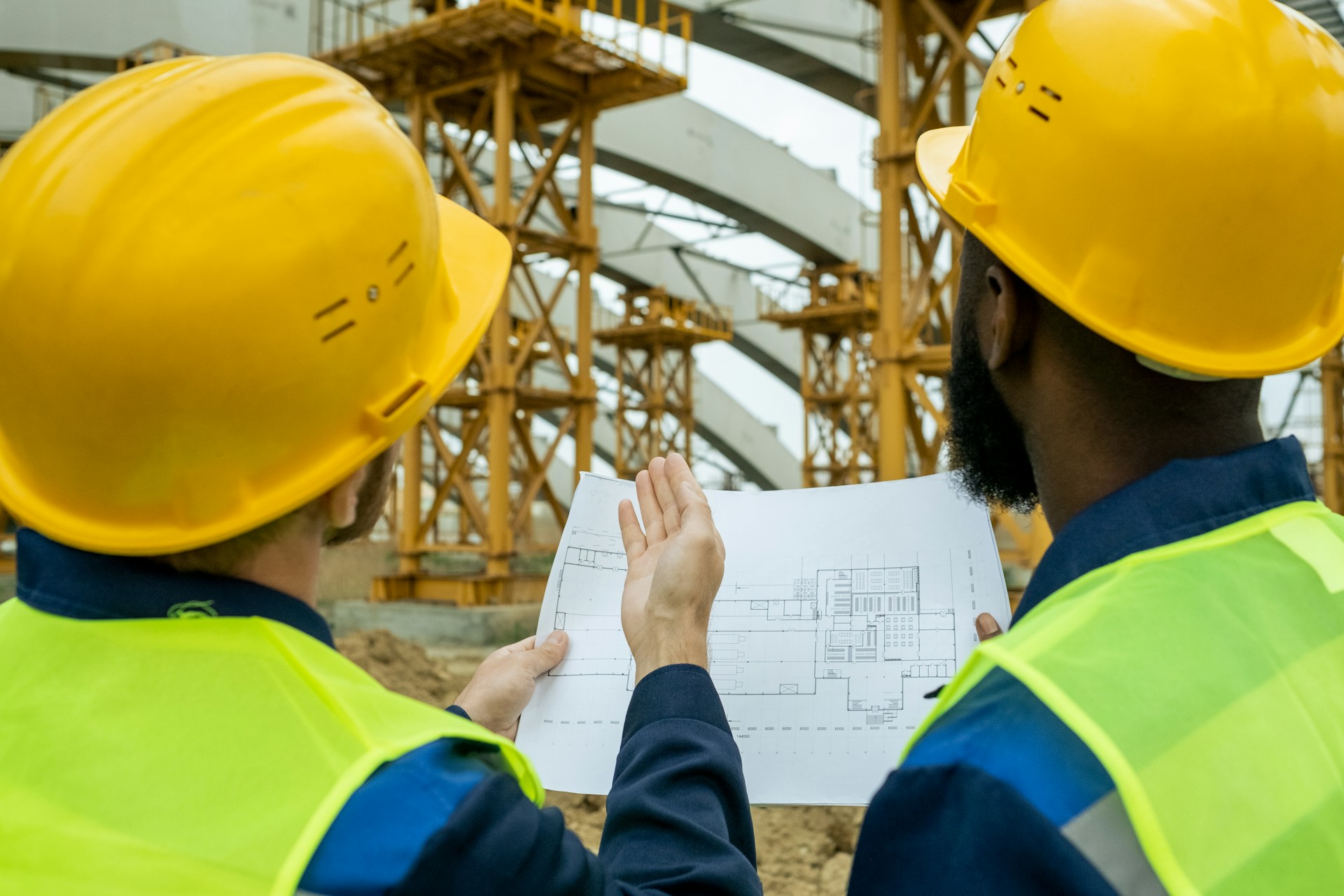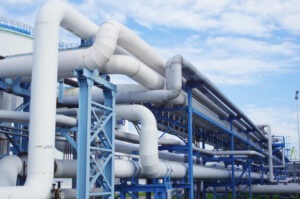Construction management is vital for the success of industrial projects. It involves planning, coordinating, budgeting, and supervising construction from beginning to end. By overseeing all aspects of the project, construction management ensures that everything runs smoothly, stays on schedule, and remains within budget. This comprehensive approach helps prevent costly mistakes and delays, making it an essential part of any industrial project.
Industrial projects, such as building factories, warehouses, or other large facilities, come with unique challenges. These projects require meticulous planning, strict adherence to regulations, and effective coordination among multiple teams. Construction management provides the framework for handling these complexities. With a construction manager at the helm, we can ensure that every detail is accounted for and that the project meets all necessary standards.
Understanding the role of construction management in industrial projects helps us appreciate the intricacies involved. It highlights the importance of having a skilled team managing every phase of the project, from initial planning to final execution. This article will delve into the fundamentals of construction management, its key components, and the critical roles and responsibilities that keep industrial projects on track.
What is Construction Management and Its Importance in Industrial Projects
Construction management is the process of planning, coordinating, and overseeing a construction project from start to finish. It encompasses everything from initial concept development and design to procurement of materials and on-site execution. The ultimate goal is to ensure that projects are completed on time, within budget, and to the required quality and safety standards.
In industrial projects, the importance of construction management cannot be overstated. These projects often involve large-scale facilities with complex requirements and strict regulations. Effective construction management ensures that all aspects of the project are meticulously planned and executed, helping to avoid costly delays and errors. It also facilitates better communication and coordination among various stakeholders, ensuring that everyone is aligned and working towards the same goal. This structured approach is essential for the successful completion of industrial projects, making construction management a critical component.
Key Components of Construction Management in Industrial Projects
- Project Planning: This is the foundation of successful construction management. It involves developing a comprehensive plan that outlines the project scope, objectives, timelines, and budget. Detailed project planning helps in identifying potential risks and establishing contingency plans, ensuring that the project stays on track.
- Cost Management: Keeping a project within budget is crucial. This involves developing a detailed cost estimate, setting a budget, and continuously monitoring expenses throughout the project. Effective cost management ensures that the project is financially viable and helps in avoiding overruns.
- Time Management: Timely completion is vital for industrial projects. Construction management includes creating a detailed project schedule, identifying critical milestones, and ensuring that all activities are completed on time. Regular progress tracking and adjustments help in maintaining the project timeline.
- Quality Management: Ensuring that the project meets the required quality standards is another critical component. This involves setting quality benchmarks, conducting regular inspections, and addressing any issues promptly. Effective quality management ensures that the final product is safe, reliable, and built to last.
- Safety Management: Industrial projects must adhere to strict safety standards to prevent accidents and ensure the well-being of workers. Construction management includes developing safety plans, providing training, and conducting regular safety audits. Adhering to safety protocols mitigates risks and ensures a safe working environment.
- Communication and Coordination: Clear communication and effective coordination among all stakeholders are essential for the smooth execution of a project. Construction management involves establishing communication channels, holding regular meetings, and ensuring that everyone is informed about project progress and any issues that arise.
By focusing on these key components, construction management helps in successfully executing industrial projects, ensuring they are completed on time, within budget, and to the highest quality and safety standards.
Roles and Responsibilities of a Construction Manager
A construction manager plays a pivotal role in industrial projects, overseeing all phases of construction to ensure successful completion. Their responsibilities are wide-ranging, requiring a blend of technical knowledge, leadership, and effective communication skills.
- Planning and Scheduling: One of the primary roles of a construction manager is to develop detailed project plans. This includes creating timelines, setting milestones, and ensuring that all tasks are scheduled accurately. Effective planning helps in anticipating potential issues and allocating resources efficiently.
- Budget Management: Keeping the project within budget is crucial. Construction managers are responsible for preparing cost estimates, managing expenses, and ensuring financial records are accurate. They must also foresee any financial risks and create contingency budgets to address unexpected costs.
- Supervision and Coordination: Construction managers oversee the work of subcontractors and ensure that all activities are well-coordinated. They conduct regular site inspections, ensure adherence to quality standards, and resolve any issues that arise on-site.
- Safety Oversight: Ensuring that all safety protocols are followed is a critical responsibility. Construction managers develop and implement safety plans, conduct training sessions, and perform regular safety audits. This approach minimizes risk and ensures a safe working environment.
- Communication: Effective communication is key to managing a successful project. Construction managers serve as the primary point of contact between stakeholders, including clients, subcontractors, and suppliers. They facilitate meetings, provide project updates, and ensure clear and consistent communication throughout the project lifecycle.
Overcoming Common Challenges in Industrial Construction Management
Managing industrial construction projects comes with various challenges. However, understanding these challenges and implementing effective strategies can ensure smooth project execution.
- Scheduling Delays: Industrial projects often face delays due to weather conditions, supply chain disruptions, or unforeseen site issues. To mitigate these delays, construction managers develop detailed project schedules and have backup plans in place. Regular progress tracking and adjustments ensure that the project remains on track.
- Budget Overruns: Keeping a project within budget is often a challenge due to fluctuating material costs or unexpected expenses. Construction managers address this by creating accurate cost estimates, closely monitoring expenses, and maintaining a contingency budget to cover unforeseen costs.
- Regulatory Compliance: Industrial projects must adhere to various local, provincial, and federal regulations. Staying updated with these regulations and involving compliance experts early on can help navigate legal complexities and avoid potential fines.
- Quality Control: Ensuring that all work meets the required quality standards can be challenging, especially when working with multiple subcontractors. Construction managers conduct regular inspections, set clear quality benchmarks, and promptly address any defects or deviations to maintain high standards.
- Safety Issues: Industrial sites are prone to safety hazards. Strict adherence to safety protocols, regular training sessions, and frequent safety audits reduce the risk of accidents and ensure a safe working environment.
By addressing these common challenges with well-planned strategies, construction managers can ensure the successful completion of industrial projects.
Conclusion
Understanding the role of construction management in industrial projects highlights the complexity and importance of meticulous planning, coordination, and oversight. From budgeting and scheduling to ensuring quality and safety, construction management is the cornerstone of any successful industrial project. The expertise of a construction manager ensures that all aspects of the project are handled efficiently, reducing risks and ensuring timely and within-budget completion.
Effective construction management is essential for meeting the unique demands of industrial projects. It not only helps in navigating potential challenges but also ensures that the project meets all regulatory requirements and quality standards. By implementing effective strategies and maintaining clear communication, a construction manager ensures the seamless execution of the project from start to finish. If you need expert guidance and management for your industrial project, contact Industra Construction Corp. today. Let our skilled team help you bring your vision to life with precision and excellence.

















